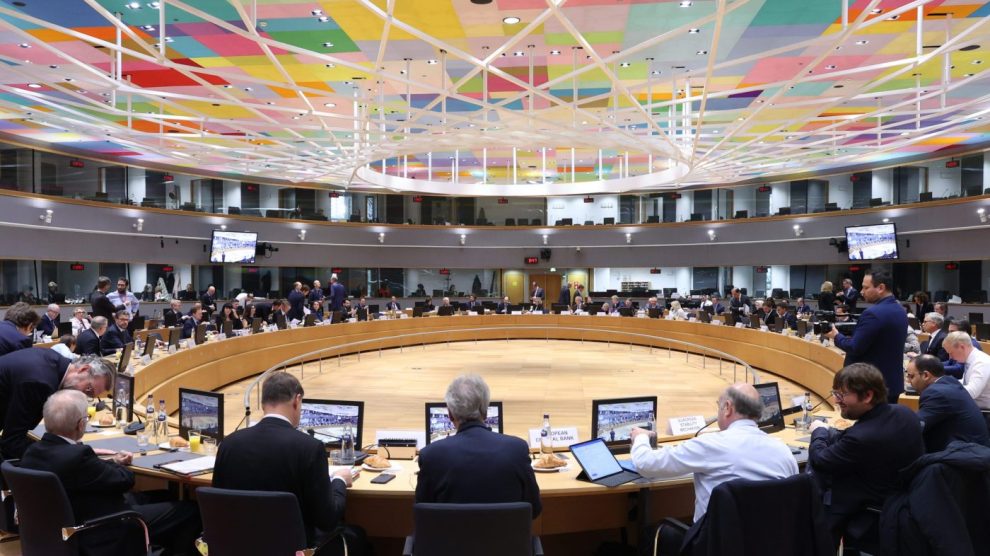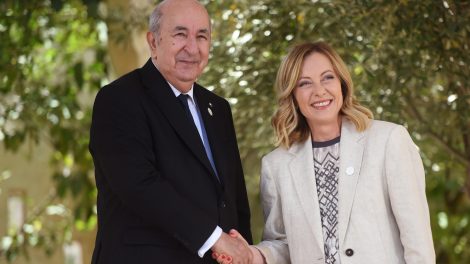Fiscal rules, deal done. European finance ministers found an agreement on the Stability and Growth Pact – the bloc’s binding agreement to coordinate economic policies and limit public deficits – during an extraordinary online meeting on Wednesday. The overhaul aims to give capitals a bigger say in managing public finances and improve enforcement where spending limits are exceeded.
- The current Pact has been on hold since the beginning of the COVID-19 pandemic to allow EU member states to increase investments in the wake of pandemic-wrought recession.
- The deal resulted from a compromise between hawkish countries (including Germany), which called for stricter rules to reduce the public deficit, and dovish countries (such as Italy and France) concerned about the need to increase investments in areas like the twin transition and defence.
An overhaul of defence spending rules. The new agreement on the Stability Pact is particularly relevant for Italy, as the country has struggled to keep its public deficit in line with the EU requirements in the past decades. The new fiscal rules will consider the importance of defence spending, which is key as Italy aims to reach the 2% target set by NATO.
- So far, Italy had managed to modulate expenditure requests and be exempted from the target – but risked lagging behind the other Allies and missing out on the trickle-down benefits in the longer term.
- “I am pleased that the Italian position has been accepted and that defence investments have been considered a relevant factor for exclusion from the calculation of the budget targets,” commented Defence Minister Guido Crosetto.
Italy’s yes was key. Italian Finance Minister Giancarlo Giorgetti was the last minister to greenlight the agreement. He later said that the new Pact is more “sustainable” and has “more realistic rules” compared to the old one. “This is good news for the European economy,” said EU Economic Affairs Commissioner (and former Italian Prime Minister) Paolo Gentiloni.
- Italian PM Giorgia Meloni welcomed the agreement and said that “the pact is an improvement” compared to past rules.
- Foreign Affairs Minister Antonio Tajani wrote on X that “many of the Italian suggestions have been accepted” and “the season of rigour has ended.”
- On a different note, Democratic Party (PD) and opposition leader Elly Schlein said while live on TG2 Post that the Pact is “a bad compromise for Italy” and the quantitative parameters will continue to hurt the country “a lot.”
What else is in it? Italy will benefit from “the deficit correction path, which takes into account higher interest rate costs,” as explained by Commissioner Gentiloni. The path toward debt correction will also consider the investments made under the framework of the national recovery and resilience plan, which will be “protected,” as mentioned by Mr Giorgetti.
- A key win for Berlin is that the deal requires EU capitals to keep their annual deficits at around 1.5% of GDP – the so-called “fiscal buffer” – to give countries room to increase spending in case of an unforeseen crisis without breaching the 3 percent deficit threshold.
- However, the new rules somehow overhaul the historic 3% deficit rules, as countries with a debt of over 90% of their GDP, such as Italy, will be able to reduce the deficit by 0.25% per year over a total of seven years instead of 0.4% over a total of four years.
Meanwhile, Parliament rejects ESM ratification. Italy remains the only holdout on adopting the European Stability Mechanism (a voluntary EU bailout fund) reform, which has been agreed by all member States and ratified by everyone else. The issue has always been tied to the reform of fiscal rules in the mind of austerity-wary Italian politicians and has become deeply politicised over the past years, as current governing parties have always warned against the perceived burden that would come with the fund’s activation.
- PM Meloni’s Brothers of Italy (FdI) and Matteo Salvini’s League voted against the ratification, while Antonio Tajani’s Forza Italia (FI) abstained.
- The vote was non-binding, but the government acknowledged its result.




